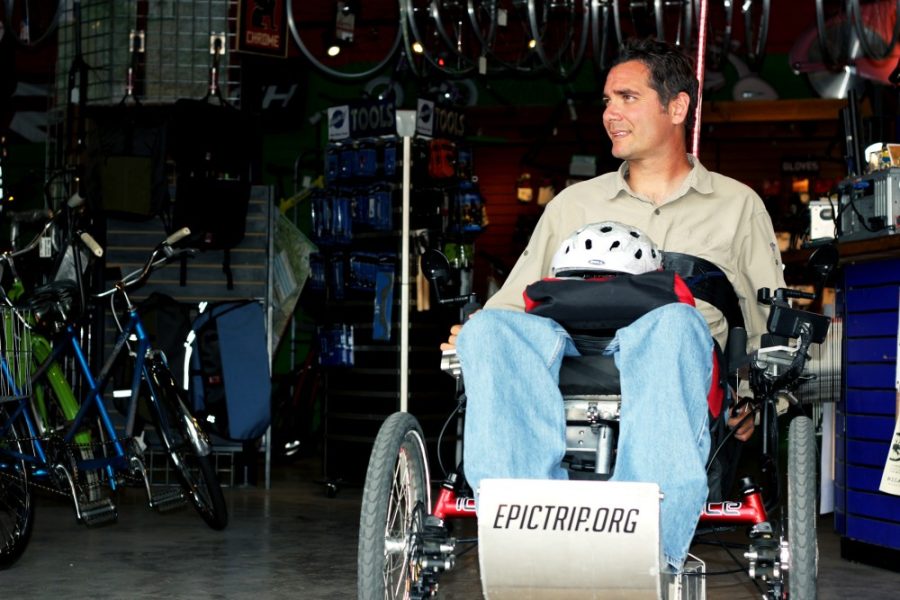Chris Wenner, former psychology professor and UA alumnus, fell in love with cycling at a young age.
“I got my first bike when I was five years old,” Wenner said. “My euphemism with my mother to go out and play was, ‘I’m gonna go ride my bike.’ That’s what I did, I rode my bike.”
A swimming accident 23 years ago that resulted in a broken neck, left Wenner a quadriplegic with 10 percent of his former arm strength and 5 percent of his hand strength. Wenner was resigned to a wheelchair and unable to ride a bicycle.
“I used to joke that walking was overrated,” Wenner said. “So I wasn’t really torn up about not being able to walk, but I was torn up about not being able to ride.”
Wenner said cycling had been such a major part of his life before his injury that he began having a recurring dream, in which he would visit a bike shop. In the dream, Wenner said he knew that if he selected just the right parts, he’d be able to build a bike that he could ride, but he always woke up just before building the bike.
Now, Wenner has achieved his dream — with the help of friends, bike mechanics and Outrider USA, a company that builds high performance electric bikes, he has engineered a motorized recumbent tricycle that he calls Charlotte.
Because of his limited hand function, Wenner designed the handlebar controls so that he could steer, accelerate and brake safely, and Outrider USA built the battery pack, which can last for about 120 miles. The trike, dubbed the Horizon, is set to be commercially available soon for around $8,000.
The trike is designed to be used by a wide range of people, including paraplegics, quadriplegics like Wenner, amputees, people who are aging and people with diseases such as diabetes and arthritis.
“It’s kind of beyond words, especially given that it was lost for so long,” Wenner said. “Being able to ride is absolutely thrilling.”
Originally inspired by an overwhelming urge for outdoor adventure, Wenner said he has set out to traverse the continental United States on his bike. With the trip, which will span over 10,000 miles and five to six months, Wenner hopes to raise money and awareness for disability issues and to meet newly injured people along the road to show them what life still has to offer.
“People with disabilities are capable of doing far more than what you typically would think, and that’s important for people to know,” Wenner said. “There are a lot of negative stereotypes about disabilities, and part of what excites me about this project is that it breaks these stereotypes.”
Originally scheduled for this May, Wenner’s trip has been postponed until at least next year due to several setbacks, such as funding.
“I need to regroup, I need to get my career in order,” Wenner said. “I hadn’t started actively fundraising, and that’s one of the reasons that I postponed the trip … I recognized how incredibly time intensive fundraising is, and I essentially ran out of time.”
Wenner said the adventure will require a hefty amount of support from friends; he will have to travel with a support vehicle and travel companions to assist him with all the problems that arise from his disability.
In spite of this, Wenner said that he tends to forget he has a disability, and that living life is more important than dwelling on losses or failures.
“[You need to] pull yourself up by your bootstraps and don’t give up, because so much of life we have to create ourselves,” Wenner said. “We can’t just expect it to happen for us, and once you identify what you want, go for it.”









